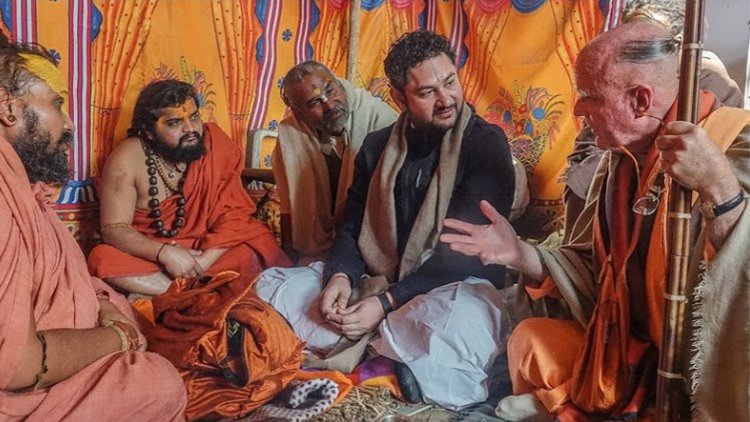https://lh3.googleusercontent.com/xSlzU0FM0pxRtvlr76gZ6GZBEodPlcheBwhjBo8-oC6s8T8cjNQl_QBR8Bcs5dyV67XcfGkSl_DcR-KQCYb7DQqbEcA=s300
0
0
Raja-kumari dasi
https://lh3.googleusercontent.com/xSlzU0FM0pxRtvlr76gZ6GZBEodPlcheBwhjBo8-oC6s8T8cjNQl_QBR8Bcs5dyV67XcfGkSl_DcR-KQCYb7DQqbEcA=s300
Raja-kumari dasi2021-05-28 05:04:482021-05-30 05:14:52To serve you, Srila Prabhupada / Мое единственное желание
https://lh3.googleusercontent.com/xSlzU0FM0pxRtvlr76gZ6GZBEodPlcheBwhjBo8-oC6s8T8cjNQl_QBR8Bcs5dyV67XcfGkSl_DcR-KQCYb7DQqbEcA=s300
0
0
Raja-kumari dasi
https://lh3.googleusercontent.com/xSlzU0FM0pxRtvlr76gZ6GZBEodPlcheBwhjBo8-oC6s8T8cjNQl_QBR8Bcs5dyV67XcfGkSl_DcR-KQCYb7DQqbEcA=s300
Raja-kumari dasi2021-04-17 08:54:272021-04-19 09:01:49Ближайшие ученики в миссии духовного учителя
https://lh3.googleusercontent.com/xSlzU0FM0pxRtvlr76gZ6GZBEodPlcheBwhjBo8-oC6s8T8cjNQl_QBR8Bcs5dyV67XcfGkSl_DcR-KQCYb7DQqbEcA=s300
0
0
Raja-kumari dasi
https://lh3.googleusercontent.com/xSlzU0FM0pxRtvlr76gZ6GZBEodPlcheBwhjBo8-oC6s8T8cjNQl_QBR8Bcs5dyV67XcfGkSl_DcR-KQCYb7DQqbEcA=s300
Raja-kumari dasi2021-03-22 09:56:012021-05-03 16:33:28Это я могу, Шрила Прабхупада!
https://lh3.googleusercontent.com/xSlzU0FM0pxRtvlr76gZ6GZBEodPlcheBwhjBo8-oC6s8T8cjNQl_QBR8Bcs5dyV67XcfGkSl_DcR-KQCYb7DQqbEcA=s300
0
0
Raja-kumari dasi
https://lh3.googleusercontent.com/xSlzU0FM0pxRtvlr76gZ6GZBEodPlcheBwhjBo8-oC6s8T8cjNQl_QBR8Bcs5dyV67XcfGkSl_DcR-KQCYb7DQqbEcA=s300
Raja-kumari dasi2021-02-22 13:25:432021-03-22 16:06:32Про искренние молитвы
https://lh3.googleusercontent.com/xSlzU0FM0pxRtvlr76gZ6GZBEodPlcheBwhjBo8-oC6s8T8cjNQl_QBR8Bcs5dyV67XcfGkSl_DcR-KQCYb7DQqbEcA=s300
0
0
Raja-kumari dasi
https://lh3.googleusercontent.com/xSlzU0FM0pxRtvlr76gZ6GZBEodPlcheBwhjBo8-oC6s8T8cjNQl_QBR8Bcs5dyV67XcfGkSl_DcR-KQCYb7DQqbEcA=s300
Raja-kumari dasi2021-01-23 14:15:082021-03-22 14:15:58Всегда за вас
https://lh3.googleusercontent.com/xSlzU0FM0pxRtvlr76gZ6GZBEodPlcheBwhjBo8-oC6s8T8cjNQl_QBR8Bcs5dyV67XcfGkSl_DcR-KQCYb7DQqbEcA=s300
0
0
Raja-kumari dasi
https://lh3.googleusercontent.com/xSlzU0FM0pxRtvlr76gZ6GZBEodPlcheBwhjBo8-oC6s8T8cjNQl_QBR8Bcs5dyV67XcfGkSl_DcR-KQCYb7DQqbEcA=s300
Raja-kumari dasi2021-01-15 14:23:242021-03-22 14:25:54Склоняясь к вашим стопам
https://lh3.googleusercontent.com/xSlzU0FM0pxRtvlr76gZ6GZBEodPlcheBwhjBo8-oC6s8T8cjNQl_QBR8Bcs5dyV67XcfGkSl_DcR-KQCYb7DQqbEcA=s300
0
0
Raja-kumari dasi
https://lh3.googleusercontent.com/xSlzU0FM0pxRtvlr76gZ6GZBEodPlcheBwhjBo8-oC6s8T8cjNQl_QBR8Bcs5dyV67XcfGkSl_DcR-KQCYb7DQqbEcA=s300
Raja-kumari dasi2019-02-26 17:05:312019-03-19 04:51:49“May Mother Ganges Bless You Today”
https://lh3.googleusercontent.com/xSlzU0FM0pxRtvlr76gZ6GZBEodPlcheBwhjBo8-oC6s8T8cjNQl_QBR8Bcs5dyV67XcfGkSl_DcR-KQCYb7DQqbEcA=s300
0
0
Raja-kumari dasi
https://lh3.googleusercontent.com/xSlzU0FM0pxRtvlr76gZ6GZBEodPlcheBwhjBo8-oC6s8T8cjNQl_QBR8Bcs5dyV67XcfGkSl_DcR-KQCYb7DQqbEcA=s300
Raja-kumari dasi2019-02-23 07:05:442019-08-13 10:39:23The Perfection of Chanting Hare Krsna / Совершенство воспевания Харе Кришна
https://lh3.googleusercontent.com/xSlzU0FM0pxRtvlr76gZ6GZBEodPlcheBwhjBo8-oC6s8T8cjNQl_QBR8Bcs5dyV67XcfGkSl_DcR-KQCYb7DQqbEcA=s300
0
0
Raja-kumari dasi
https://lh3.googleusercontent.com/xSlzU0FM0pxRtvlr76gZ6GZBEodPlcheBwhjBo8-oC6s8T8cjNQl_QBR8Bcs5dyV67XcfGkSl_DcR-KQCYb7DQqbEcA=s300
Raja-kumari dasi2018-11-12 03:27:222018-11-16 07:22:01Подношение на день ухода Шрилы Прабхупады 2018
https://lh3.googleusercontent.com/xSlzU0FM0pxRtvlr76gZ6GZBEodPlcheBwhjBo8-oC6s8T8cjNQl_QBR8Bcs5dyV67XcfGkSl_DcR-KQCYb7DQqbEcA=s300
0
0
Raja-kumari dasi
https://lh3.googleusercontent.com/xSlzU0FM0pxRtvlr76gZ6GZBEodPlcheBwhjBo8-oC6s8T8cjNQl_QBR8Bcs5dyV67XcfGkSl_DcR-KQCYb7DQqbEcA=s300
Raja-kumari dasi2018-10-18 06:14:572018-11-09 06:35:24Ваша милость, Шрила Прабхпада...
Scroll to top









